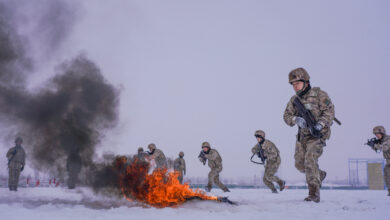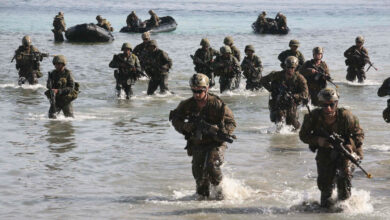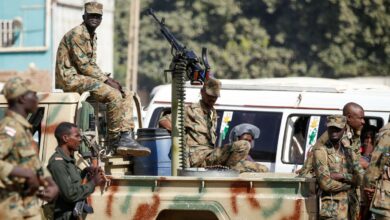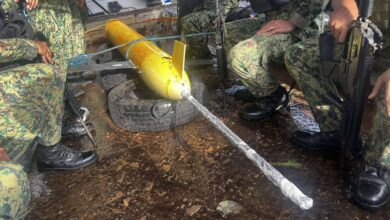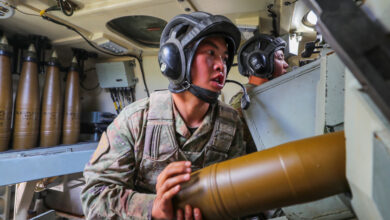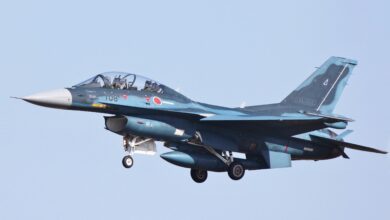A push at the United Nations to secure financing for peace operations led by the African Union won strong backing from China on Tuesday, November 20, but the United States poured cold water on the proposal.
Ethiopia, Equatorial Guinea and Ivory Coast – the three African non-permanent members of the Security Council – have presented a draft resolution that would allow U.N. financing for A.U. peace missions on a case-by-case basis.
France and U.N. Secretary-General Antonio Guterres back the initiative that would provide the African Union with a major influx of funds and strengthen its role in dealing with conflicts on the continent.
At a council meeting chaired by China, the United States, the top financial contributor to U.N. peacekeeping, said it was “premature” to agree to regular U.N. funding of new A.U. peace operations.
Although it is the top financial contributor, the U.S. lags significantly in terms of its troop contribution to peacekeeping missions, ranking 75th out of the 122 countries, and contributing just 55 out of around 90,000 personnel deployed in September.
African countries provide nearly half of the U.N. peacekeepers deployed worldwide.
“It’s too soon to make decisions about changing the U.N.’s peacekeeping relationship with the A.U. when the A.U. is still working on its internal reforms,” said U.S. Deputy Ambassador Jonathan Cohen.
Cohen argued there were “serious and unanswered questions” about U.N. authority over any future A.U.-led peace operation, which could have a robust offensive mandate to tackle insurgents.
The U.N. must ensure that African troops adhere to high performance standards, maintaining good conduct and discipline and respecting human rights, he said.
While the U.S. supports more cooperation between the U.N. and the A.U. on peacekeeping, the U.S. diplomat cautioned against any “rushed process to make a decision” on the major shift.
China, the number two financial contributor to U.N. peacekeeping, threw its weight behind the initiative, saying it would buttress the A.U.’s “silencing the guns by 2030” plan to end conflict.
“China supports the U.N. in providing sustainable and predictable funding for the A.U.-led peace operations,” said Chinese Ambassador Ma Zhaoxu.
U.N. peacekeeping is already tightly focused on Africa, with half the 14 missions deployed on the continent, including the five biggest operations.
The push to turn over peacekeeping to the A.U. could take a major step next month when the council is expected to vote on the draft resolution put forward by the three African countries.

Several U.N. peacekeeping missions, notably in the Central African Republic and South Sudan, have been plagued with serious allegations of misconduct including cases of rape of civilians they are mandated to protect.
The Security Council voted on November 15 to temporarily renew the mandate of the Minusca mission in CAR until December, amid heated debates about its ability to stem the unrest.
The vote came on the deadline for a renewal of the force’s mandate and amid wrangling over a resolution drafted by France that would see U.N. peacekeepers support newly-trained Central African troops as they deploy, supporting a “rapid extension of state authority over the entire territory.”
A new vote must be held before December 15.
The French proposal raised eyebrows, in particular from the U.S., which is seeking to streamline peacekeeping operations to reduce costs and make them more effective, diplomats said.
U.S. President Donald Trump’s administration has taken a hard line on U.N. funding, cutting contributions and pushing for cost-saving reforms.
In July, U.N. member countries agreed a peacekeeping budget of just under $6.7 billion. The top contributors to peacekeeping funding are the U.S. with 28.5 percent, China with 10.3 percent, Japan with 9.7 percent, Germany and France with 6.3 percent each, and the United Kingdom with 5.8 percent.
But in March, U.S. Ambassador to the U.N. Nikki Haley said other countries need to “step up” and pay a larger share. She said Washington would cap its contribution to 25 percent, which has been U.S. law since the 1990s but has been waived in the past.

The U.S has also pushed back against proposals for the U.N. to directly fund the G5 Sahel joint counter-terrorism force. Despite almost doubling U.S. assistance to the G5 Sahel Joint Force member states to almost $111 million, that support to Burkina Faso, Chad, Mali, Mauritania and Niger takes the form of “bilateral security cooperation efforts,” rather than direct funding for the joint force, a U.S. Africa Command spokesperson told The Defense Post earlier in November.
Speaking at the U.N. General Assembly on September 26, Mali’s President Ibrahim Boubacar Keita said the G5 Sahel Joint Force was “struggling to become fully operational,” highlighting the lack of an adequate mandate and “especially appropriate funding.”
Keita again urged the Security Council to provide it with “adequate, timely and predictable funding.”
Guterres has pledged to pursue support for the force. Guterres, as well as France, has lobbied for regular U.N. funding, in addition to support already agreed by the Security Council in December, when it authorized the Minusma mission in Mali to provide assistance to the joint force.
But on May 23, the U.S. said it opposed a Security Council mandate for the force as well as direct U.N. funding.
With reporting from AFP





